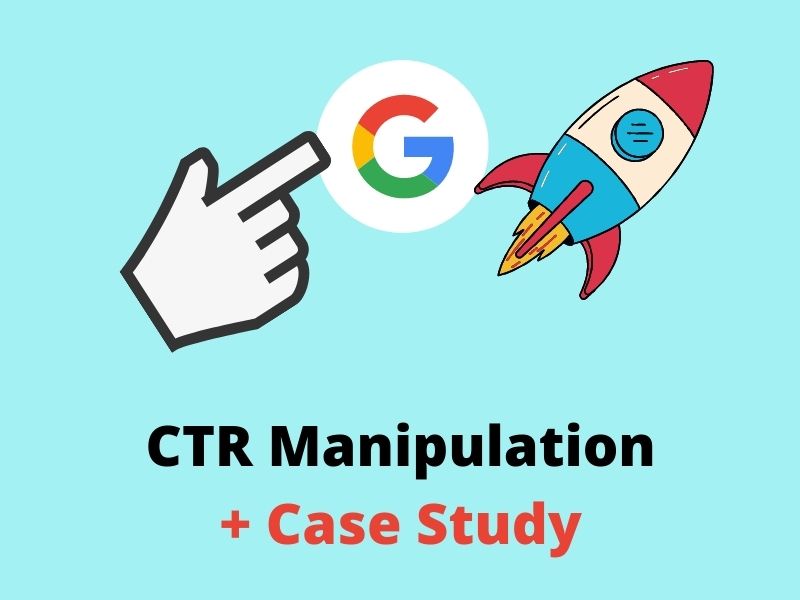LinkDaddy CTR Manipulation: Specialized Solutions for Improved Internet Website Traffic
LinkDaddy CTR Manipulation: Specialized Solutions for Improved Internet Website Traffic
Blog Article
Discovering the Relationship In Between CTR Control Providers and Individual Actions
In the realm of digital advertising, the influence of click-through rate (CTR) adjustment services on customer habits stays a complicated and intriguing topic. By dissecting the intricate partnership in between CTR control solutions and individual habits, intriguing understandings emerge that may reshape our understanding of digital advertising and marketing strategies and their results on consumers.
Influence of CTR Manipulation on Actions
Examining the impact of Click-Through Rate (CTR) manipulation on customer actions exposes critical insights right into the dynamics of online interaction. CTR manipulation includes synthetically blowing up the number of clicks on a specific link or promotion to deceive customers and online search engine. This practice can result in a distorted assumption of a webpage's appeal or importance, eventually influencing customer behavior.

Moreover, CTR adjustment can alter the data used by algorithms to individualize user experiences. This can lead to individuals being served content that does not line up with their choices or passions, inevitably resulting in a decrease in individual contentment and involvement. Comprehending the effect of CTR manipulation on user actions is necessary for keeping openness and count on in on-line interactions.
User Interaction With Controlled CTR
User involvement with adjusted CTR data commonly causes skewed understandings of on-line material popularity and relevance. When customers interact with content based upon artificially filled with air Click-Through Rates (CTR), they might think that specific info, items, or services are more popular or credible than they in fact are. This can lead to users making decisions based on deceptive data, resulting in potentially undesirable end results.
Engagement metrics like likes, shares, remarks, and time invested in a webpage are commonly influenced by CTR adjustment. Individuals might be extra likely to engage with web content that appears to have higher engagement rates, even more perpetuating the cycle of manipulated understandings. Because of this, web content designers and marketers might prioritize creating material that generates high CTR instead than concentrating on creating really important and appropriate material.

Emotional Impacts of CTR Control

Furthermore, the psychological results of CTR adjustment can additionally manifest in altered decision-making procedures. Customers may be more inclined to click web content only based on its regarded popularity, instead of its actual value or significance to their requirements. This behavioral change can cause a surface involvement with online web content, where individuals might ignore premium but less popular offerings for those with synthetically improved CTRs.
In essence, the emotional ramifications of CTR manipulation highlight the importance of preserving openness and credibility in online communications to cultivate real individual interaction and trust.
Honest Considerations in CTR Manipulation
CTR control raises concerns about tricking individuals, distorting data analytics, and jeopardizing the reliability of online web content. By synthetically pumping up CTR, customers might be deceived right into clicking on links or advertisements they would not have picked otherwise, leading to a disingenuous online experience.
Another moral element to contemplate is the justness of controling CTR to acquire an unfair benefit over competitors. Taking part in such practices not only breaches principles of fair play however additionally threatens the trust that users place in on-line platforms. It is vital for companies and electronic marketing professionals to promote honest requirements in their practices to make certain openness, trustworthiness, and long-term sustainability in the online atmosphere.
Implications for Digital Advertising
With the boosting dependence on digital platforms for advertising functions, the method of controling click-through prices (CTR) positions substantial ramifications for the efficiency and honesty of electronic advertising and marketing methods. CTR control can cause skewed information analytics, misinforming marketing experts into believing that their projects are performing much better than they really are. This can result in misallocation of resources, with companies buying underperforming approaches based upon falsified CTRs. Furthermore, when users recognize that CTRs have actually been controlled, it can erode rely on the brand name, resulting in long-lasting adverse consequences for client loyalty and brand name online reputation.
In addition, using CTR adjustment solutions can develop an unreasonable competitive landscape, where business that take part in such methods get a fabricated benefit over those that stick to honest advertising standards. This can stifle advancement and imagination in digital advertising and marketing, as success ends up being more regarding adjustment techniques than delivering authentic value to customers. Inevitably, the effects of CTR manipulation for electronic advertising extend beyond temporary gains, impacting the total sustainability and integrity of marketing efforts in the electronic world.
Verdict
Finally, the partnership between CTR control solutions and customer habits is complex and multifaceted. The impact of CTR control on behavior, user engagement with manipulated CTR, emotional impacts, moral considerations, and ramifications for digital advertising all contribute fit this connection. Comprehending these dynamics is critical for marketing experts and researchers alike in order to navigate the ethical implications and make the most of the performance of their electronic marketing approaches.
Report this page